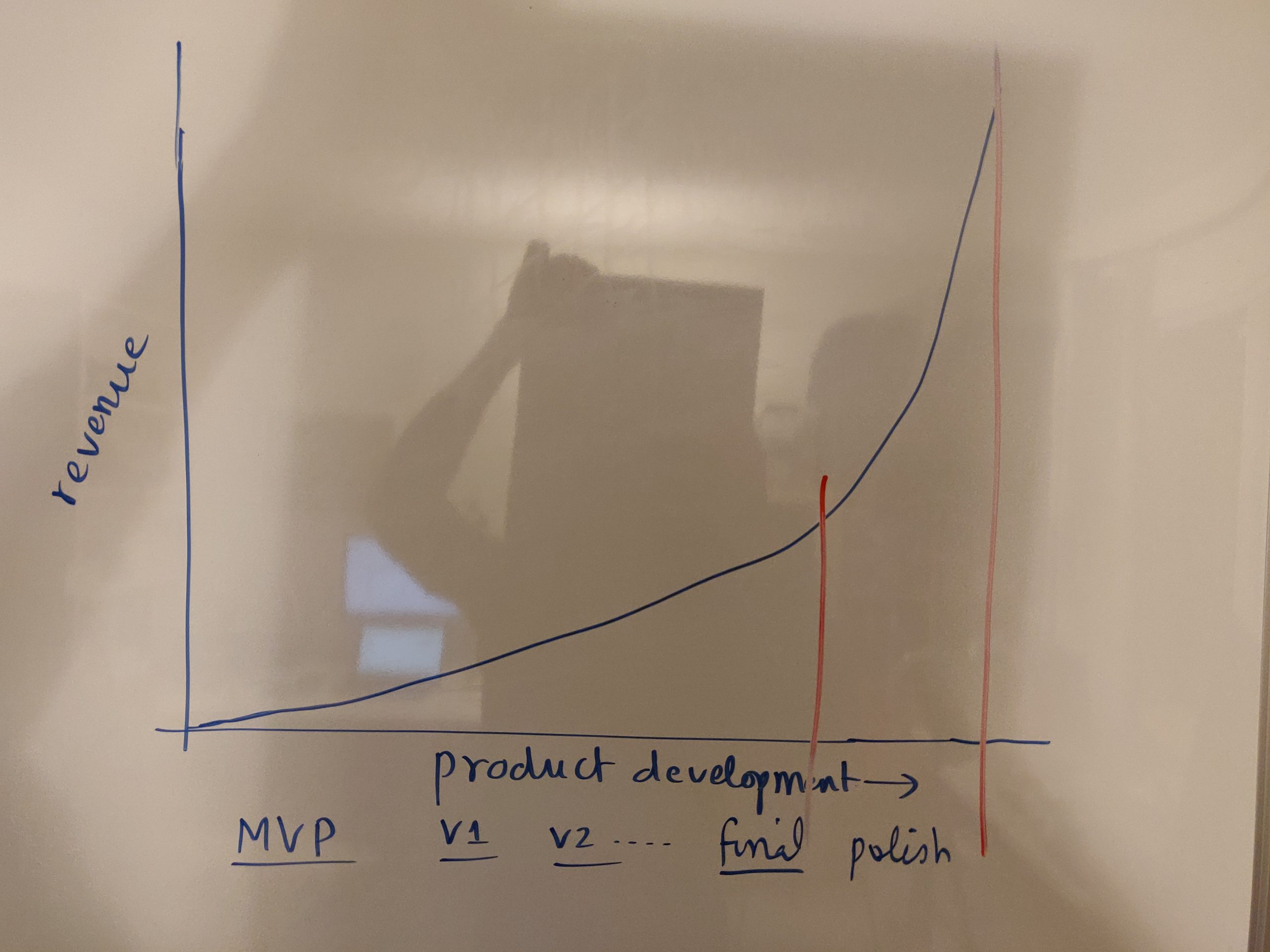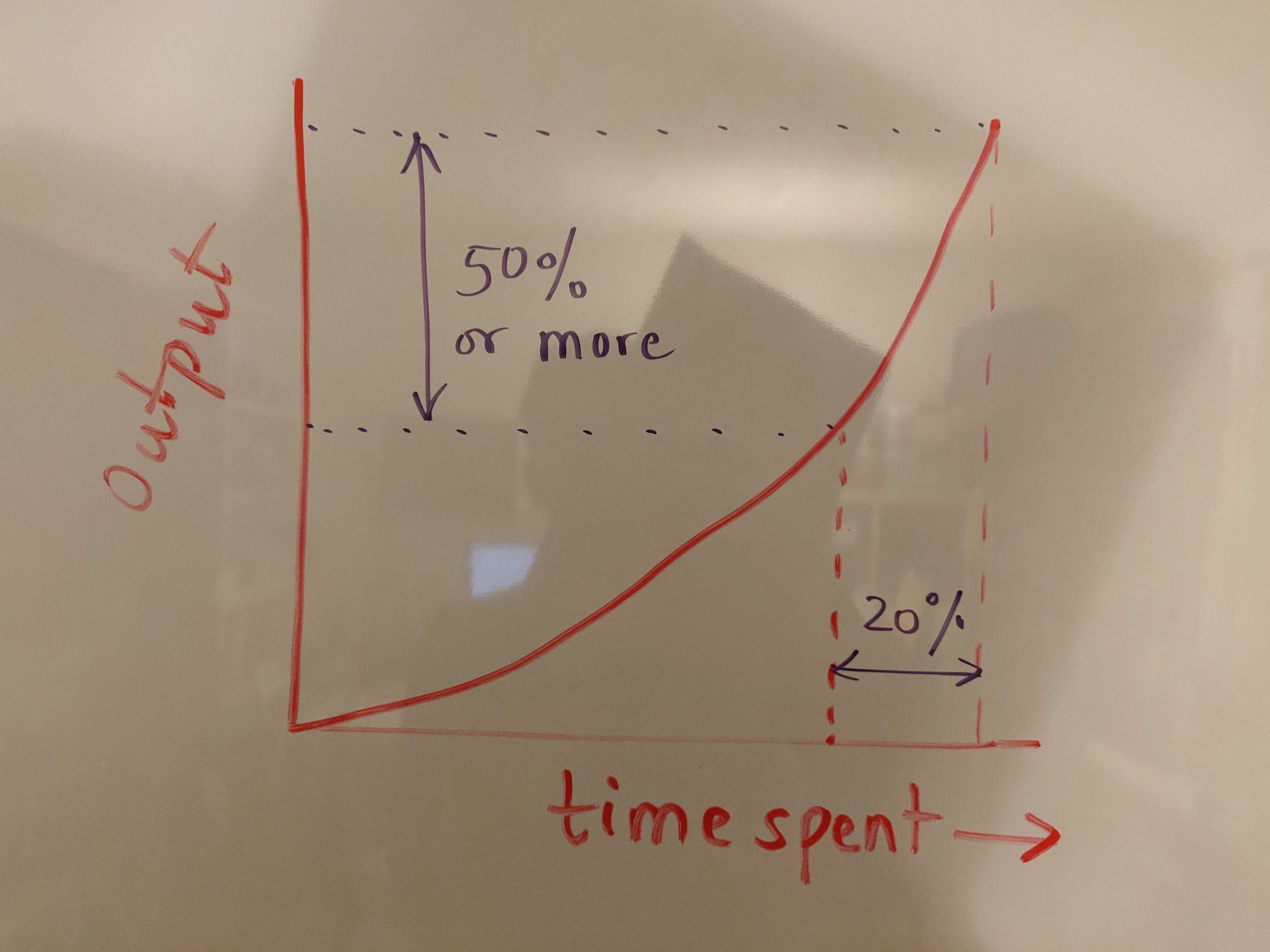I worked as a software engineer for a while, and like most engineers, writing documentation, finishing off the last 10-20% of the work to make it usable by others, make it readable were usually not high on my priority list.
The last 20% matters
But that last 20% makes or breaks your work. That is the deciding factor between your work being useful in the long haul or being sacrificed in the next round of upgrades.
This does not just apply to code. It applies to almost everything we do.
This is similar to the Pareto Principle, aka as the 80/20 rule. 80% of the usefulness of your work or product (or rather its longevity) comes from the final 20% of the work.
Applications to areas beyond coding
Apple goes to great lengths about putting a lot of effort into the final stretch, in packaging, how the experience of opening their product is, their onboarding, etc. So, despite their products being no better than others (and in many cases worse, compare MacBook Pro to a Lenovo laptop running Linux — I know this is a controversial position to take, but something that has been true for me), their products have a lot of appeal and they are amazingly successful.

Developers who go the extra mile to work a bit more to polish their code end up being the star, disproportionately more than the amount of extra work they put into it. The final 20% of the effort they put increases the reward / output / compensation by 2x or even more.

Of course, there is an inverted U-shape curve where beyond a certain limit, your productivity starts to go down. But we are not talking about the extreme realm.
This is also a reason companies in Silicon Valley are willing to pay a lot of money for a lot of work. The jobs where you get a moderate amount of money for a moderate amount of work (e.g., half the money for half the work) are just not there. The second half is much more productive and valuable for the company.
Working across skills
This principle not only applies to working on the same kind of job for 20% more time but working across skills too.
For example, some people have a hard time speaking up at their work, and they would rather work more to prove themselves, instead of communicating their work too. That is noble, but communication is a very important skill. For their own career growth, spending that extra 20% (or even 10 or 5%) of the time in learning to speak fearlessly will have a lot more reward for their career than extra 10 hours they put into coding more.
I am coaching someone who would benefit a lot more from spending extra five hours a week on writing skills than spending an equal amount of time working more on their area of strength (software and product management). But writing is not their strength and they have a lot of resistance when it comes to writing, even though it comes at great cost to them, especially if we consider the future growth potential from having great writing and communication skill.
We are told that we should use our strengths and work around our weaknesses. That is true if you can avoid the areas of your weakness and they don’t affect your career. But basic skills like communicating your work and showcasing your contributions are essential skills in current corporate culture (or for that matter anywhere). If you are weak in them, avoiding your weakness is not a wise choice, if you want to grow as much as you can in your career.
One example is in order. I used to work for Facebook. There, some times, I did not do as well as I would have liked to. And other times, I did well but did not communicate and showcase my work after I did some good work. I always thought if I did good work, my manager should champion for me. I was just hiding behind my shyness to communicate my work. And I considered it bragging to talk about my own work when it was good. I have my own business now and only now I realize the fallacy of depending on others to speak for you, even more so than you can speak for yourself. And please don’t get me wrong. It is essential that others speak for your good work too (I get clients only through referrals)! But that should not be a substitute for you not being able to speak for yourself.
If you want to grow in your career, you should spend the vast majority of your time on your strengths. But beyond a certain limit, also spend time and improving on some weaknesses that are essential to your growth. Not every weakness should be avoided. It can be detrimental to your career growth.
Where can you spend 20% of your time to jump-start your career today? What are the weaknesses that are holding you back? Where are you hiding behind your strengths?